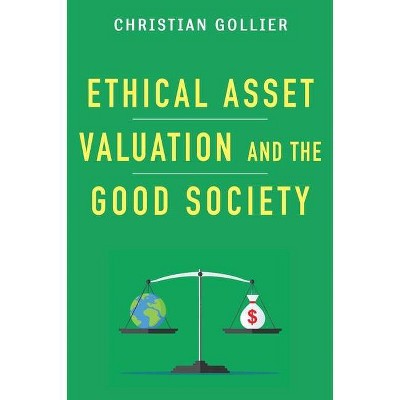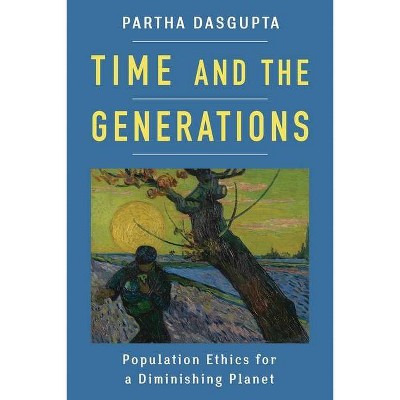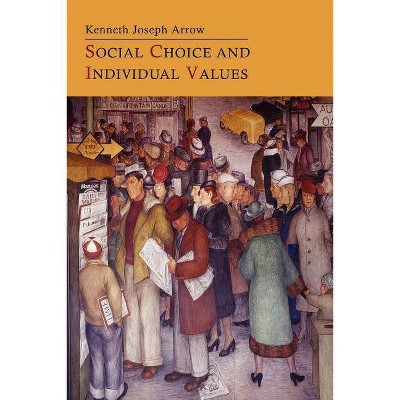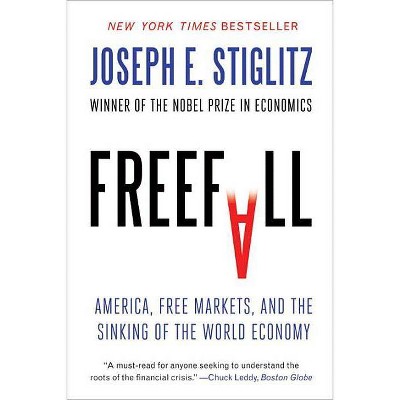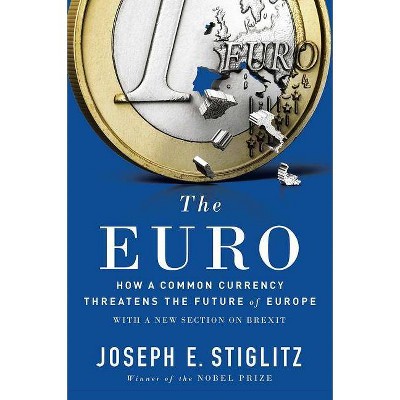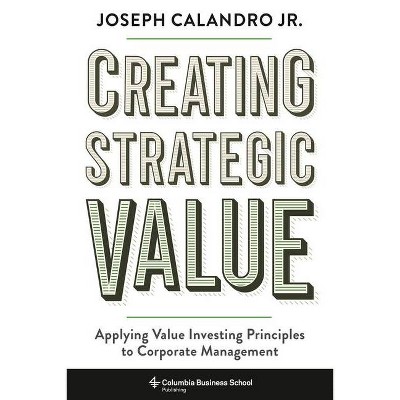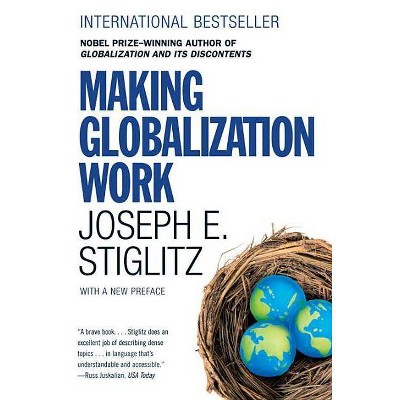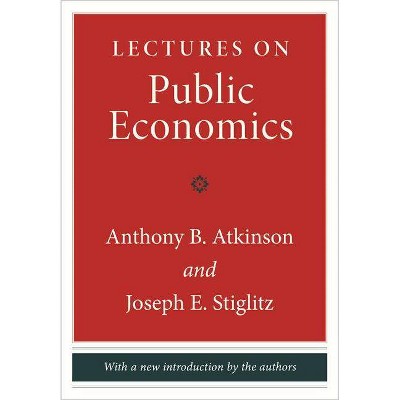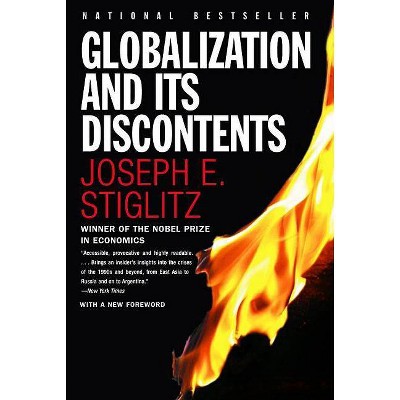Creating a Learning Society - (Kenneth J. Arrow Lecture) by Joseph E Stiglitz & Bruce Greenwald (Hardcover)
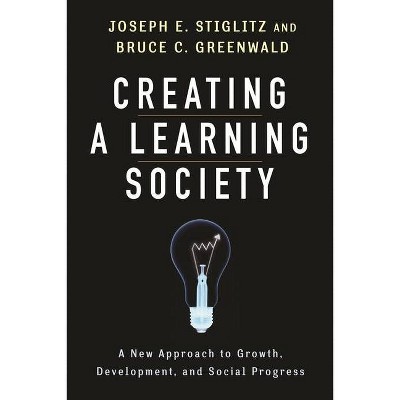
Similar Products
Products of same category from the store
AllProduct info
<p/><br></br><p><b> About the Book </b></p></br></br>To understand how countries grow and develop, it is essential to know how they learn and become more productive and what government can do to promote learning. In <i>Creating a Learning Society</i>, Joseph E. Stiglitz and Bruce C. Greenwald cast light on the significance of this insight for economic theory and policy.<p/><br></br><p><b> Book Synopsis </b></p></br></br>It has long been recognized that an improved standard of living results from advances in technology, not from the accumulation of capital. It has also become clear that what truly separates developed from less-developed countries is not just a gap in resources or output but a gap in knowledge. In fact, the pace at which developing countries grow is largely a function of the pace at which they close that gap. <p/>Thus, to understand how countries grow and develop, it is essential to know how they learn and become more productive and what government can do to promote learning. In <i>Creating a Learning Society</i>, Joseph E. Stiglitz and Bruce C. Greenwald cast light on the significance of this insight for economic theory and policy. Taking as a starting point Kenneth J. Arrow's 1962 paper "Learning by Doing," they explain why the production of knowledge differs from that of other goods and why market economies alone typically do not produce and transmit knowledge efficiently. Closing knowledge gaps and helping laggards learn are central to growth and development. But creating a learning society is equally crucial if we are to sustain improved living standards in advanced countries. <p/>Combining accessible prose with technical economic analysis, Stiglitz and Greenwald provide new models of "endogenous growth," up-ending thowhe thinking about both domestic and global policy and trade regimes. They show well-designed government trade and industrial policies can help create a learning society, and how poorly designed intellectual property regimes can retard learning. They also explain how virtually every government policy has effects, both positive and negative, on learning, a fact that policymakers must recognize. They demonstrate why many standard policy prescriptions, especially those associated with "neoliberal" doctrines focusing on static resource allocations, have impeded learning. Among the provocative implications are that free trade may lead to stagnation whereas broad-based industrial protection and exchange rate interventions may bring benefits--not just to the industrial sector, but to the entire economy. <p/>The volume concludes with brief commentaries from Philippe Aghion and Michael Woodford, as well as from Nobel Laureates Kenneth J. Arrow and Robert M. Solow.<p/><br></br><p><b> Review Quotes </b></p></br></br><br>[A] sweeping work of macroeconomic theory.--Walter Frick "Harvard Business Review "<br><br>An impressive tour de force, from the theory of the firm all the way to long-term development, guided by the focus on knowledge and learning. Indeed, when economic theory takes knowledge on board--with its specific features and modes of accumulation--many of the conventional conclusions break down, from the welfare properties of competitive markets to the virtues of 'comparative advantages' in international exchanges. At the same time, in learning economies, public policies and institutions are shown to play a paramount role. This is an ambitious book with far-reaching policy implications.--Giovanni Dosi, Director, Institute of Economics, Scuola Superiore Sant'Anna<br><br>If one's attention is on the economic long run and the processes involved in economic change, innovation and learning quickly can be seen as occupying the center of the stage. Unfortunately, for the last half century, the bulk of the attention in microeconomic theorizing has been on economic statics, which is blind to these variables. This book is a welcome exception.--Richard R. Nelson, Columbia University<br><br>Joseph E. Stiglitz and Bruce C. Greenwald have contributed a superb new understanding of the dynamic economy as a learning society, one that goes well beyond the usual treatment of education, training, and R&D. This important work continues the quest of Stiglitz and Greenwald for an appreciation of the role of public policy in overcoming market failures, asymmetries, and inefficiencies, and it provides insights on the limits and distortions of laissez-faire assumptions of optimality. This book should be at the very center of the next wave of policy debate.--Robert Kuttner, coeditor, <i>The American Prospect</i><br><br>Profound and dazzling. In their new book, Joseph E. Stiglitz and Bruce C. Greenwald study the human wish to learn and our ability to learn and so uncover the processes that relate the institutions we devise and the accompanying processes that drive the production, dissemination, and use of knowledge. The authors' analysis provides the foundations of an understanding of the progress and regress of nations. This is social science at its best.--Partha Dasgupta, University of Cambridge<br><p/><br></br><p><b> About the Author </b></p></br></br>Joseph E. Stiglitz is University Professor at Columbia University and a member and former chair of Columbia University's Committee on Global Thought. He was the winner of the 2001 Nobel Prize for Economics. He served on President Clinton's Council of Economic Advisors, and then joined the World Bank as chief economist and senior vice president. His most recent book is <i>The Price of Inequality: How Today's Divided Society Endangers Our Futur</i>e. <p/>Bruce C. Greenwald is Robert Heilbrunn Professor of Finance and Asset Management at Columbia Business School. He is director of the Heilbrunn Center for Graham and Dodd Investing. His books include <i>Value Investing: From Graham to Buffett and Beyond</i> and <i>Competition Demystified: A Radically Simplified Approach to Business Strategy Portfolio</i>.
Price History
Cheapest price in the interval: 26.49 on October 22, 2021
Most expensive price in the interval: 26.49 on November 8, 2021
Price Archive shows prices from various stores, lets you see history and find the cheapest. There is no actual sale on the website. For all support, inquiry and suggestion messagescommunication@pricearchive.us
